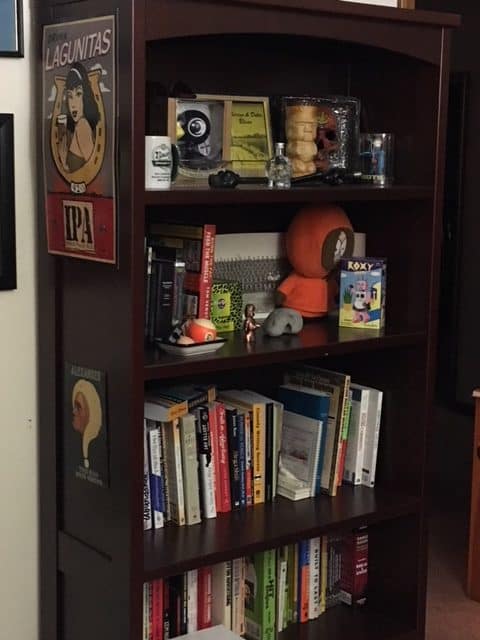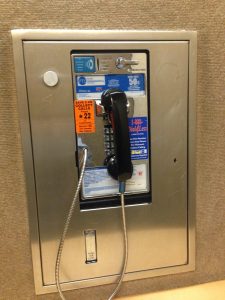Sunday, 3:45pm
Reno, NV
“Mongo just pawn in game of life.” (Blazing Saddles.)
Howdy…
A while back, I published a series of posts on Facebook under the theme “How To Win An Argument“.
… then I thought: Why not just bundle them up into one blog post?
Plus, include the updated insights (and comments) I’ve had since then.
What a great idea!
Below is a mildly-edited collection of that series on winning an argument. I didn’t save the dozens and dozens of comments from the first time I ran the series on Facebook…
… and that’s a shame, because it was a great thread, full of other lessons.
For example: The easiest way to get a whole bunch of folks frothing is to talk about
- sex, or
- their belief systems.
People go nuts when you challenge their crusted-over, nailed-down-tight beliefs on how things ought to be.
As you’ll see below, I just laid out my views on how to handle people who want to argue and how to define “winning” for yourself…
… and that just pissed off some folks.
Even discussing arguing inflamed their knee-jerk need to argue.
They argued about arguing.
They just refused to accept my premise that most folks see arguing as a form of fisticuffs, with only winners and losers.
It’s humorous, ironic, and illustrative of how whacko (and vindictive) human beings can be.
Also, as a marketer, it’s informative — especially if you want or need to introduce some form of argument or alternative view into your advertising.
And, yes, this entire series is very much aimed at marketers.
Great ads seldom argue, though they may be pushing buttons right and left. The psychology is subtle, but awesome.
Just remember: For most folks, arguing isn’t about persuading. And that’s just a waste of time.
Winning an argument is about communication. This is what we discuss A LOT in my weekly lessons on my emails. If you want to get your hands on these immediately actionable tidbits, sign up and get my free report to boot: 11Really Stupid Blunders You’re Making With Your Biz & Career Right Now. Did I mention it’s free?
So, without further ado, here’s that series. Love to hear your comments… even if you wanna argue:
How To Win An Argument, Step 1:
The primary rule is simple — never argue back, when your goal is persuasion.
No one, in the history of humankind, has ever changed their mind because of an argument.
When cornered (logically or physically), humans dig in and will sacrifice wealth, health and dignity before admitting they’re wrong.
They WILL occasionally change their minds, if they’re just plain wrong…
… but not because you demolished their belief system with crap like logic and debate moves.
They change because of an internal epiphany that is akin to death/rebirth.
As in, waking up in the middle of the night realizing what a doofus they’ve been, defending the undefendable. The cognitive dissonance just catches up with you, and you no longer want to expend energy
So, Rule #1: If you want to “win”, never engage in an argument.
[My comment, mid-way through the fray in the Facebook comment section, after being lectured by some rage-a-holics on how to properly (and sometimes physically) demolish a debate opponent: “Interesting that several comments here reveal a complete misunderstanding of how to WIN an argument — not just humiliate your opponent (and create a new enemy).”
“It’s a big difference. I guess this little tutorial is needed, badly. Negotiation and persuasion are NOT part of our default equipment, folks.”]
How To Win An Argument, Step 2:
Now you need to DEFINE what “win” means to you.
Is it to persuade the person you’re up against? That’s gonna require some deft moves (which we’ll discuss later).
Often, however, there may be an audience you want to persuade — so you’re actually playing to the crowd. (Give your opponent enough rope to hang himself, in that situation, to win the meta-discussion.)
Or, you may be genuinely interested in other points of view (or acquiring intel on how the opposition operates).
Traditional, undisciplined arguing is just a shouting match with childish rules (first one to cry or leave flustered loses). The goal isn’t to persuade, but to spill blood either emotionally, intellectually or physically.
And no one’s mind is changed.
Not engaging the argument doesn’t necessarily mean splitting, though.
You just need to clearly understand WHY you’re in this situation, and WHAT you want out of it.
This simple moment of defining your goal will help you with every single subsequent decision. (“Art Of War” aficionados — and chess players — will happily lose every single battle up to the last one, for the victory. But you need to know what “victory” means for you. Being stubborn — the first clue you’re dealing with a rookie — may win the immediate round, but ruin all future moves.)
[My comments in the fray for Step 2, after being mocked for bringing up the book “Art Of War” (an ancient Chinese treatise on conducting warfare to win): “Once you get your Zen game on, coming up against someone who uses stubbornness as their main tactic will become a moment of joy (and easy, quick victory).”
“BTW: If just shutting him up is your goal, mockery works best. I don’t recommend this, cuz it can lead to fisticuffs. You ‘win’ by shutting him down, but ‘lose’ by having your teeth knocked out.”
“Mockery works as a reframing tool — you discern the ape-brain fear behind his anger, and turn the conversation on that. The focus instantly becomes his fear and his reaction to being mocked over it.
Few humans can avoid sputtering and regressing to infantile states when their deepest shame is publicly ridiculed. Very, very dirty trick, and probably you deserve whatever happens next if you use it.”
“Important: Being ‘armed’ with tactics that win without persuading is a huge responsibility.
It’s like becoming skilled at martial arts, and you ARE responsible for the consequences of superior firepower. This is why knowing your goal is so critical.”
“Don’t get distracted by recent situations you’ve been in, guys. This is all pretty simple — for an easier life, and better marketing tactics, don’t argue…
… and get clear on what you consider a ‘win’. It can be win-win, win-lose, or no-play (or any of many other results). The keys are (a) to be conscious, not get sucked into mindless time/energy-wasting exercises in futility, and (b) to further your own goals.”]
How To Win An Argument, Final Step:
Okay, you realize that arguing isn’t persuasion, and you’ve defined what you want out of the situation. This is equal to (a) a reality check (so you stop doing what doesn’t work)…
… and (b) goal setting — the fundamentals of growth.
Next, you use the tools that DO work — which just happen to be the same tools great salesmen use to persuade skeptics to buy.
You disarm anger, reframe the context (so you’re not wallowing in the stuck-in-one-place psychological wastelands that stubborn people like to fight in)…
… and “come in through a side door” (as old school salesmen like to say).
You don’t engage head-on, you ignore irrationality, and because you’re so clear on your goal…
… you take your ego out of it.
Use the old improvisational theater tactic of never being negative yourself: Say “Yes, AND…” while relentlessly moving things toward the discussion you actually want to have.
(That improv trick keeps live, unrehearsed comedy sessions from ending in a sputtering mess. If your partner says, “Oh, look — a UFO just landed”, you don’t say “I don’t see anything. What the fuck are you talking about?”… because by responding that way, the improv ship has crashed. You’ve killed the session, leaving both of you with no place to go. The correct response is “Yes, and look who’s getting out — it’s your grandma and dog Manfred!” or something that keeps the flow going, allowing both of you to remain engaged.)
If you’ve ever been in the presence of a master negotiator, break down what happened.
Probably: Resistance was soothed, bonding occurred, and you likely found yourself moving off your position and agreeing with him…
… even if you began on opposite sides.
In short… you “win” an argument by reframing what “win” means, so that you exit the nobody-wins context of belligerence (keeping your ego out of it), using your salesmanship chops to find common ground, bond, navigate the mostly-unconscious landscape of your opponent (to avoid hot buttons while simultaneously teasing his positive emotional needs)…
… while relentlessly and patiently move toward your goal (whatever that is).
This is why great salesmen live better lives. They understand human behavior, so they always know what’s “really” going on, and they have skills to consciously persuade or redirect even irrational, emotionally-discordant folks to a better place. Where good things can occur.
Could your salesmanship skills use some brushing up? Then check out these resources right over here.
At the very worst, you will never feel the angst of having gone through a useless shouting match (cuz you have self-permission to disengage at any time, since a “win” for you should include not feeling your blood pressure go up a single notch).
And by realizing that a classic argument is almost never about what it looks like it’s about on the surface, you can control where the situation ends up.
So, take your ego out of it, define your desired results in terms of reality, and be a good salesman.
Make sense?
You can disagree with me on any or all of these points.
Just know that this is insider tips from a veteran sales pro who learned it all the hard way, and honed the skill of persuasion in the front trenches of the real world. My client list has included some of the most stubborn and argumentative bastards to ever walk the earth.
Learning to wrangle them to where I needed conversations to go was essential, and these lessons saved my butt many times.
Love to hear your take on the matter, of course, in the comments section below.
Stay frosty,
John
P.S. Have you ever wondered how your life would be different if you could just…
… master the art of selling?










